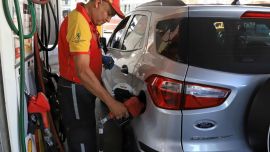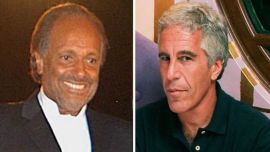It has been more than 15 months since an agreement was reached in principle for the EU-Mercosur trade deal, and yet, ratification hasn’t even started. The growing destruction and deforestation in the Amazon rainforest has sounded the alarm among European leaders, who are now asking Mercosur members nations for further green commitments.
The governments of Germany, France, Netherlands and Ireland, among others, have all openly questioned the agreement over the past months, blocking it from moving forward. This, in turn, led the European Parliament to claim last week that the agreement cannot be ratified, expressing “deep concerns” over Brazilian President Jair Bolsonaro’s policies.
“The EU-Mercosur agreement is the largest of its kind between two blocs and could create a beneficial open market for both parts,” the EU Parliament wrote in a report. “But the agreement has binding rules on sustainable development that have to be applied and fully enforced.”
The deal offers huge potential for Latin America, especially at a time of economic decline. If ratified, the deal would remove tax barriers and increase quotas for 90 percent of goods traded between the European Union and Mercosur (Argentina, Brazil, Paraguay, and Uruguay). While the EU would gain access to financial services, cars and parts, Mercosur would access products that critics say drive deforestation, such as soy, beef and ethanol.
That has been the main concern for European leaders, who were triggered last year by images of massive forest fires in Brazil and Bolsonaro’s subsequent rejection of calls for greater environmental protections. In addition, there has been long-term resistance to the deal on both sides, from subsidised farmers in the EU to protected industries in Mercosur nations.
“The current status of the trade deal picks up the usual dynamic of these negotiations. The unusual part was the agreement itself,” Julieta Zelicovich, a researcher in international relations from Rosario University, told the Times. “There’s grassroots resistance to the deal in Europe, including farmers, unions and environmentalists.”
A long-term deal
The EU and Mercosur currently exchange almost US$100 billion in goods annually, with a balance very slightly in favour of the Europeans. For Argentina, its business with the EU accounts for 15 percent of all trade, exporting biodiesel, beef and soy and importing manufactured and value-added goods.
It took more than 20 years of negotiations for the agreement to finally be achieved in 2019. If introduced, it would gradually eliminate up to 91 percent of the tariffs charged by Mercosur to European imports, estimated to be around US$4 billion. The same will occur for goods in the other direction, with the EU eliminating 92 percent of the tariffs charged on South American goods.
However, while the outlines are there, many steps remain, none of which seem to have progressed since the initial agreement. For example, the final text of the accord has to be translated to the languages of all the countries involved. Then, each country will have to start an internal parliamentary discussion of the deal. The EU Parliament will have to approve it, as well as the individual parliaments of the 28 EU countries. The same applies to Mercosur states.
Detail is missing too. The agreement includes a “Trade and Sustainable Development” chapter, which is excluded from the enforcement mechanism that applies to the rest of the deal. It says all parties shall “implement measures to combat illegal logging and related trade,” without detailing what these measures should comprise.
To environmentalists, the vague nature of the chapter and its weak enforcement mechanisms means it will be hard for the EU to hold Brazil accountable for breaches of its commitment to fight illegal deforestation.
That’s why they are calling for a new round of negotiations to change this chapter of the agreement.
“The proponents of the agreement will try to make a few changes or add some declarations to the deal and then try to bring it across the finish line. We oppose this tactic. The agreement has to be renegotiated completely to make it work for people and the planet,” said Cornelia Maarfield, a trade expert at Climate Action Network.
If that’s the case and a new round of negotiations is opened, the agreement would face further delays and open up a Pandora's box, triggering even more uncertainty. Still, there could be other less-eventful alternatives. Countries could agree on a political commitment on the sidelines of the agreement, for example.
Nevertheless, any potential change to the agreement would need a different stance to come from Bolsonaro, which at the moment doesn’t seem likely. Brasilia has repeatedly said it rejects EU claims that a trade deal would increase deforestation, claiming that those concerns are motivated by a protectionist drive from European leaders.
“The agreement is currently in a difficult spot,” said Marcelo Elizondo, a trade expert with the DNI consultancy firm. “Europe is asking for Mercosur to fulfill a set of environmental requirements, which Mercosur isn’t willing to do so. Brazil is in the spotlight and is the one that has the key to solve all this.”
Public opinion against the deal is also mounting. A recent survey by pollster YouGov showed three out of four Europeans want the accord to be stopped if it contributes to deforestation and environmental damage. Almost 80 percent of the respondents from France, Spain, Germany and the Netherlands see the need to stop the agreement on the basis of its risks.
Such concerns have been reflected in recent statements by European leaders. German Chancellor Angela Merkel recently expressed “considerable doubts” over the agreement and French Prime Minister Jean Castex said his country opposed the deal as it is now, criticism shared by the parliaments of Austria and Netherlands.
A weak Mercosur
As Europe hesitates over the progress of the agreement, the Mercosur bloc itself is also facing something of a severe identity crisis, with its member states adopting different stances to the talks. Uruguay and Brazil have openly called for the bloc’s rules to be changed, in order to allow states to seek deals independently, while Argentina has had no fear about putting on the brakes.
“The main feeling in Mercosur is now to wait and see what happens with the EU. But governments should start asking themselves whether they want to renegotiate the agreement or not and what elements they would be willing to change,” said Zelicovich. “There’s a big question mark over all this.”
Mercosur’s rules currently ban individual trade agreements by its members. But Uruguay and Brazil have repeatedly asked to change this, seeking deals with the United States and China, for example. Nevertheless, the issue hasn’t been resolved and hasn’t even progressed, given it would require an agreement between its members.
The diplomatic differences in the bloc were laid bare for all to see in April, when the Alberto Fernández administration threatened to withdraw from ongoing trade negotiations with South Korea. The Foreign Ministry said it was concerned over the fast-tracking of agreements, claiming progress should be halted due to the pandemic and the economic situation.
Mercosur nations pushed strongly for the deal with the EU to happen, with Argentina, at the time led by Macri, one of its strongest supporters. Upon taking office, the Fernández administration initially rejected the agreement and said it was disadvantageous for Argentina, but recently Foreign Minister Solá has indicated a more open, less defined stance.
“We changed our stance. We started saying no to the deal due to the impact it could have on our industrial sector and because it wasn’t much beneficial on agriculture either,” Solá said in a recent conference.
“When the EU decides what it wants to do with the deal, we’ll send it to Congress and have a debate around it,” he said.

























Comments